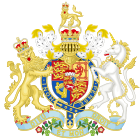Apothecaries Act 1815
| Act of Parliament | |
 | |
| Long title | An Act for better regulating the Practice of Apothecaries throughout England and Wales. |
|---|---|
| Citation | 55 Geo. 3. c. 194 |
| Other legislation | |
| Amended by | Apothecaries Amendment Act 1825 6 Geo. 4. c. 133 |
| Repealed by | Statute Law (Repeals) Act 1989 |
Status: Repealed | |
| Text of statute as originally enacted | |
| Apothecaries Amendment Act 1825 | |
|---|---|
| Act of Parliament | |
 | |
| Long title | An act to amend and explain an Act of the Fifty fifth Year of His late Majesty, for better regulating the Practice of Apothecaries throughout England and Wales. |
| Citation | 6 Geo. 4. c. 133 |
| Dates | |
| Royal assent | 6 July 1825 |
| Commencement | 6 July 1825 |
| Repealed | 5 August 1873 |
| Other legislation | |
| Amends | Apothecaries Act 1815 |
| Repealed by | Statute Law Revision Act 1873 |
Status: Repealed | |
The Apothecaries Act 1815 (55 Geo. 3. c. 194) was an Act of the Parliament of the United Kingdom with the long title "An Act for better regulating the Practice of Apothecaries throughout England and Wales". The Act introduced compulsory apprenticeship and formal qualifications for apothecaries, in modern terms general practitioners, under the license of the Society of Apothecaries. It was the beginning of regulation of the medical profession in the UK. The Act required instruction in anatomy, botany, chemistry, materia medica and "physic", in addition to six months' practical hospital experience.[2]
Despite the Act, training of medical people in Britain remained disparate. Thomas Bonner, in part quoting M. Jeanne Peterson,[3] notes that "The training of a practitioner in Britain in 1830 could vary all the way from classical university study at Oxford and Cambridge to a series of courses in a provincial hospital to 'broom-and-apron apprenticeship in an apothecary's shop'".[4]
References
[edit]- ^ The citation of this Act by this short title was authorised by the Short Titles Act 1896, section 1 and the first schedule. Due to the repeal of those provisions it is now authorised by section 19(2) of the Interpretation Act 1978.
- ^ Porter, Roy (1999) [1997]. The Greatest Benefit to Mankind: A Medical History of Humanity from Antiquity to the Present. New York: W. W. Norton & Company. pp. 316–317. ISBN 978-0-393-31980-4.
- ^ Peterson, M. Jeanne (1978). The Medical Profession in Mid-Victorian London. University of California Press. p. 5.
- ^ Bonner, Thomas Neville (1995). Becoming a Physician : Medical Education in Great Britain, France, Germany, and the United States, 1750-1945. Oxford University Press. p. 167. ISBN 9780195362657.
External links
[edit]- Warren M. (2003). "1800-1849". A Chronology of State Medicine, Public Health, Welfare and Related Services in Britain: 1066 - 1999. Archived from the original on 11 August 2006. Retrieved 1 September 2006.
- Associated Apothecaries and Surgeon-apothecaries of England and Wales (2008). Transactions of the Associated Apothecaries and Surgeon- Apothecaries of England and Wales, page xliv. Retrieved 15 March 2008.
